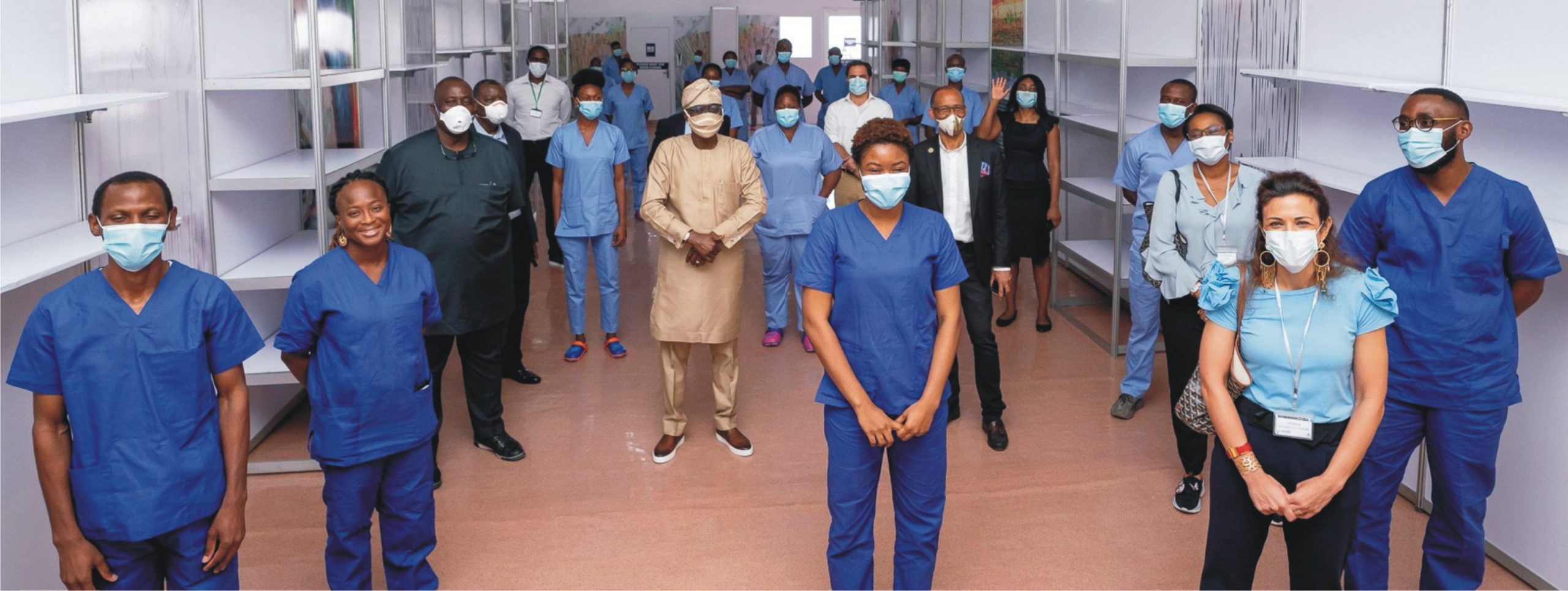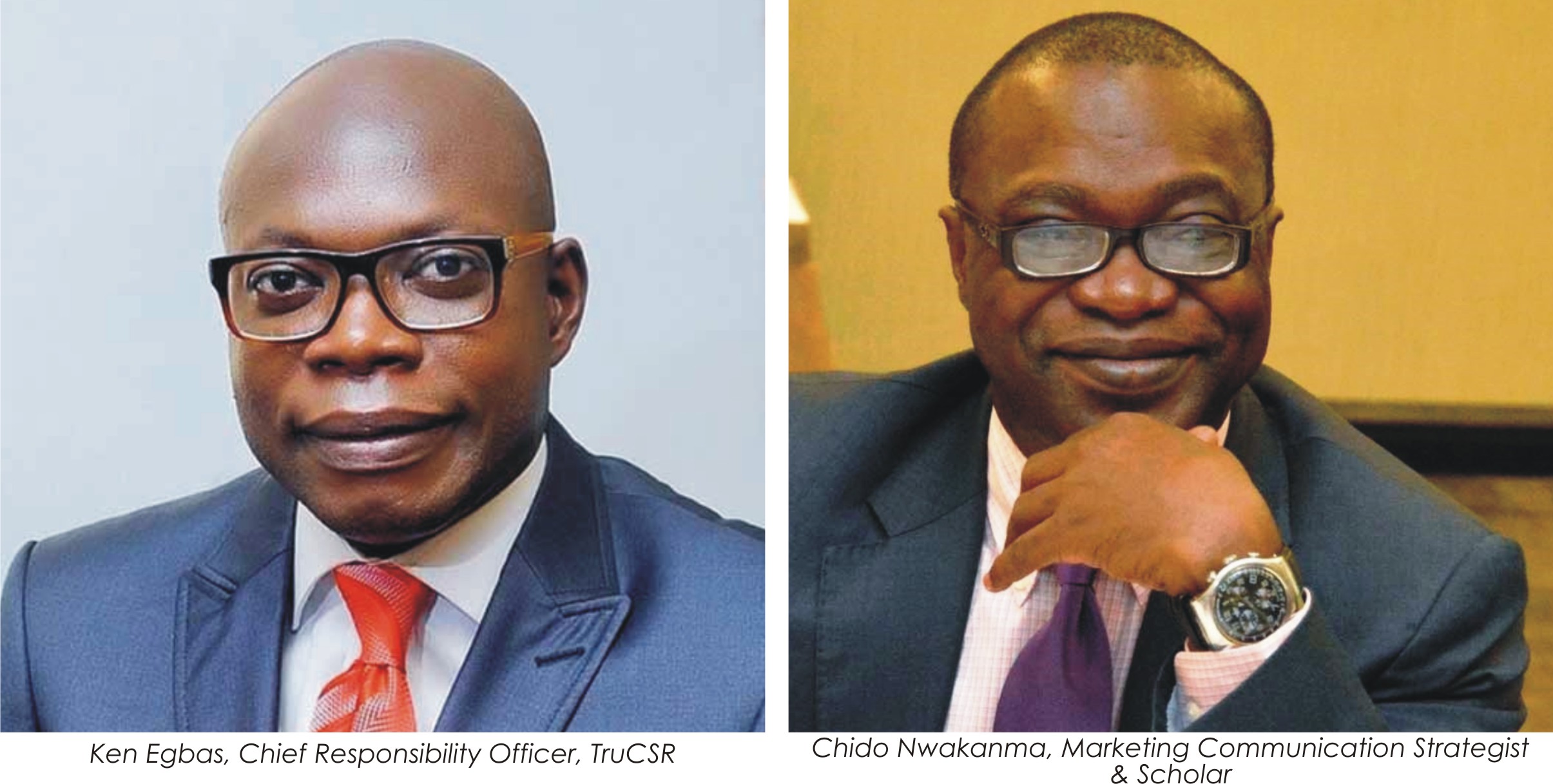
Considering the extent of health and economic losses experienced globally since COVID 19 was first identified in China, the impact of this disease in the last 10 months, is yet to be fully assimilated by any country. The modern world has never been rattled to this level. For months, social and economic activities across the globe virtually came to a standstill at different times as various authorities took on the challenge of stopping and gradually reversing the spread and impact of the epidemic.
In most economies, panic-driven governments and the private sector teamed up in strategic partnership to fight this common enemy. For corporate bodies, the touch point in this partnership, most time, is covered within an area termed Corporate Social Responsibility (CSR) in business parlance.
Even before the COVID-19 pandemic, one of the core mechanism of CSR has always been about putting a human face on business entities by communicating empathy, understanding and support, both moral and financial, in an area they can identify as most needed. In the last 10 months, the world has definitely been in a time of obvious great need, so transferring the ideals of CSR to the dislocation caused by COVID-19 was the ultimate option for responsible corporate bodies as governments and individuals try their best to get through an extremely challenging time.

For Nigeria, probably apart from a Molecular Biology Laboratory that Lagos University Teaching Hospital (LUTH) got from Chevron, there were no tangible touch from the private sector in this area to prepare the country for humongous epidemic that was threatening. But reports from other countries seemed to have awakened everyone. Private sector support for government in the days that followed the initial discovery of COVID-19 cases was really massive. Nigeria has never had this kind of response from corporate players in terms of the amount dished out to government to work with to halt the spread of COVID-19 in the country.
Frontline Donors
In March, the Coalition Against COVID-19, known as CACOVID, was formed. Anchored in Nigeria’s Central Bank but Led by Aliko Dangote, Africa’s wealthiest man, the coalition is backed by several corporate bodies like Access Bank Group, Zenith Bank, Guaranty Trust Bank, and several others.
The mission was to mobilize private sector leadership and resources to support health facilities to respond effectively to the COVID-19 crisis. The focus was on individuals and organisations that can donate at least One billion naira each.
Within a month, total donation to the CACOVID relief fund totalled over $55.7m, with Dangote and the Central bank donating $5.1m each.
Other major private players who donated between 1-3 billion naira include Segun Agbaje (Guaranty Trust Bank), Jim Ovia (Zenith Bank), Herbert Wigwe (Access Bank), Tony Elumelu (United Bank for Africa), Abdulsamad Rabiu of BUA Group, Folorunsho Alakija of Famfa Oil Limited, Oba Otudeko (First Bank), Femi Otedola of Amperion Power, billionaire businessman Mike Adenuga of Globacom and the Nigeria Deposit Insurance Corporation.
The Nigerian National Petroleum Corporation alongside some oil companies has pledged $30m to the Nigeria Centre for Disease Control to improve patient care, medical supplies and equipment.
The Nigeria Waterways Authority (NIWA) donated N10m, Intels donated an Isolation centre at Onner Port, just as GT Bank donated a 110-bed space Isolation centre in Lagos. Also, NIMASA donated 20 ventilators and N50m, Keystone Bank donated N1bn, Famfa Oil donated N1bn, while APM terminals donated N100m.
Some wealthy businessmen and corporate organisations had gone beyond donating to the relief fund at the centre to directly supporting states to deal with the disease.
For instance, Union Bank contributed $130,000 to the Lagos State emergency food response programme which provides food supplies to low-income families following restrictions on movement.
By extension, The UBA Foundation, the charity wing of United Bank for Africa, provided $14m to support efforts locally and in countries where it has operations in Africa.
CSR Benefits
Many organisations have come to see that having an effective Corporate Social Responsibility (CSR) offering creates a win-win situation. Even before COVID-19, CSR has become a familiar metric of how well a brand interacts with stakeholders and communities, both locally and globally. Supporting the common social good has become just as important a goal as delivering shareholder value and profitability for organisations for all sizes, even up to small scale or enterprise level.
Today, the value of being a good corporate citizen goes beyond the pride and satisfaction of providing simple altruistic support for worthy goals. Strong and consistent CSR policies have become a cornerstone of the identity of many brands with customer bases that strongly identify with causes championed by businesses.
Companies are increasingly ramping up their focus on social responsibility, from the look-good perspective, socially responsible companies project more attractive images to both consumers and shareholders alike, which can serve to positively affect their bottom lines.
Being a socially responsible company can bolster a company’s image and build its brand as well as go a long way towards attracting and retaining customers, which is essential to a company’s long-term success. Obviously, instilling trust in potential customers is readily one of the biggest benefits of CSR.
According to a survey in the UK, 63% of the public would give socially responsible businesses the benefit of the doubt during a crisis. And having customers on the side of any brand is important. Research conducted at Boston University suggests that companies with good CSR can effect a “reservoir of goodwill” that incentivizes customers to minimize any negative information they may come across on social or in the media, creating a sort of reputational insurance policy that protects the company in the event of anything going wrong.
Another study reveals that up to 76% of consumers say they wouldn’t do business with a company that holds views or supports issues that are in conflict with their own. This means you can encourage a strong sense of customer loyalty by working with charities or groups you know your customers support.
Knowing a part of your profits goes towards a cause they support can encourage customers to align themselves with your business, motivating greater spending and boosting return business.

Learning Curves
Although many brands in Nigeria are beginning to grapple with the full benefits of CSR, huge challenges like the current COVID-19 pandemic provides both a gauge of the systems, as well as learning opportunities for the future.
Speaking on this in a recent interview, the Chief Responsibility Officer at TruCSR, CSR and Sustainability consulting firm, Ken Egbas said, “As a nation, made of several layers of leadership, we are more reactionary than proactive. The ultimate seed of pro-activity is that the process of mining, interpretation, and storage of data should be key. As the saying goes, what you don’t document, you cannot measure. What you cannot measure, you cannot improve. What you cannot improve is not a sustainable venture.”
“The Ebola crisis shocked our system, and we reacted in desperation, other than a national set out response process. The same thing happened with the current Coronavirus pandemic. In both instances, we had the privileges of viewing debilitating optics from other parts of the world that portended the end of social relationships as we used to know it, and of course, the possibility of casualties in hundreds of thousands.”
In the interview published in the Guardian, Ken Egbas revealed that even in all these, a lot of learning has occurred in many folds. Firstly, stakeholders, especially corporate organisations now have a better grasp of the meaning of corporate social responsibility.
In Egba’s words, “Usually, when people hear the word ‘responsibility’, it is often associated with burdens and restrictions; the opposite of being carefree and without obligations. Responsibility is neither a chore nor a cage. It is a function of how it is understood. Responsibility simply put- is our ability to respond. It means to be proactive and sensitive to the interconnectedness of humanity and varying needs and a willingness to do something to protect it”.
“It is obvious that Coronavirus has provided most leaderships in the corporate world a masterclass learning moment, where Corporate Social Responsibility and sustainability is better understood. Over the last fifteen years, the barrier to full fledge adoption of CSR and sustainability by organisational leaders has been the elephant-in-the-room question of – what is the business case for CSR and sustainability?”
“With nearly N25bn committed by corporate organisations to the COVID-19 war chest, without much promptings or goading, in just two weeks, there is no bigger example of the magnitude of lessons leant from this experience.”
Challenges
Despite the positive lessons, there are still identifiable challenges facing CSR activities in Nigeria. According to marketing communication strategist and scholar, Chido Nwakanma, “Despite the remarkable response from corporate organisation to the COVID-19 challenge, there are problems with CSR management in Nigeria. Accountability is top on the list.
“The primary accountability lies with the recipient of donor funds. However, donors also have a duty to shareholders to do whatever they can to ensure the appropriate use of their donations. They should adopt Corporate Social Investment principles that tie the funds to specific projects and deliverables.”
Chido Nwakanma in the interview published in guardian.ng explained that CSR is now accepted as a significant part of corporate governance and the United Nations even spells it out under its social compact. He added that companies are supposed to report on their corporate citizenship activities for purposes of transparency.
Government Efforts
Most times, with government involvement, CSR, humanitarian relief and reconstruction efforts with their concomitant influx of funds, are particularly vulnerable to corruption and have a high chance of being subject to waste and mismanagement. Countries that, however, put adequate response frameworks in place end up effectively managing the situation.
While some countries, especially in the developing world, contend with misappropriation and mismanagement of emergency funds, others are making progress towards effective emergency management, most notably through a shift from a primary focus on disaster relief to a more holistic approach that emphasises preparedness and prevention measures.

In line with this, the government in Nigeria few months ago released a detailed Framework for the Management of COVID-19 Funds in Nigeria (CACOVID) under the Treasury Single Account (TSA) by office of the Accountant-General of the Federation (OAGF). This was packaged in line with international best practice as outlined on the IMF’s Public Financial Management blog (designed to help IMF member countries address the economic effects of COVID-19).
In what seems to be a clear effort to establish financial probity, the framework explicitly states that CACOVID accounts in selected banks will be linked with the TSA through CBN’s current payment gateway, Remita. This is to provide a consolidated view of aggregate cash balances as well as a single window for real-time access to details of receipts and disbursement of the funds from any of the accounts.
Furthermore, the framework asserts that the office of the Accountant-General of the Federation shall publish a Daily Treasury Statement for COVID-19 fund outlining all inflows, including its source, and outflows to a properly identified MDA. All very commendable initiatives aimed at showing government’s commitment to increasing trust of its citizenry.
In all these, one thing is clear – building trust is vital for corporate social responsibility to be sustainable. Financial transparency, accountability and probity are critical for the efficient functioning of a modern economy and for fostering social well-being without which there will be a compelling lack of trust between the Federal Government, contributing organisations and the citizens.













